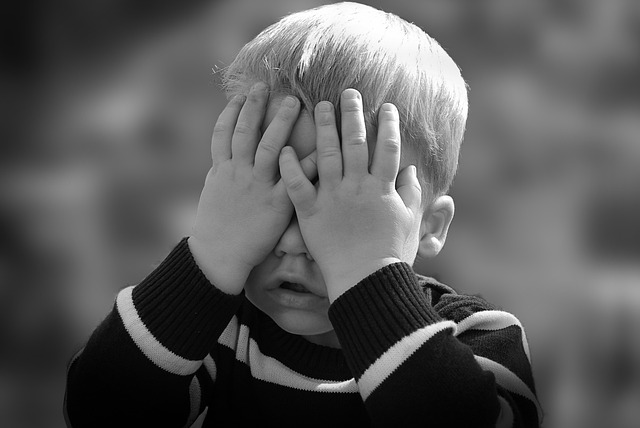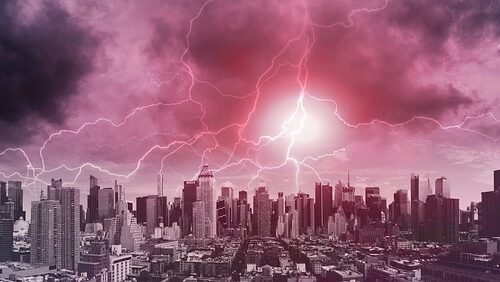Experiencing a natural disaster is traumatizing for anyone, and kids take it harder. They aren’t mature enough to handle the distress of living through a hurricane, wildfire, or flash flood. Identifying the psychological impact of a disaster on children can be challenging because they can manifest signs of stress differently from grown-ups.
Due to climate change, natural disasters are likely to occur more intensely and frequently from now on. Understand their effects on your little ones to have a climate-resilient family.
What Is the Psychological Impact of Disasters on Children?
Natural calamities can affect kids’ mental health. Weather-related emergencies can change their behaviors, intrude into their thoughts, and interfere with their daily lives. The effects may be worse when they witness a loved one suffer and lose something of sentimental value because of the ordeal.
Young disaster survivors may become severely anxious, making them more prone to panic attacks. They may continue to suffer inside after manifesting clear-cut symptoms of post-traumatic stress. The anxiety they feel in the aftermath of a tragedy may last for years, staying with them until adulthood when left unchecked.
5 Signs of Stress After a Climate Disaster to Watch Out For — and How to Alleviate Them
How do you know if your child is stressed? It depends on their age because toddlers may react differently to distressing events than teenagers. However, these five signs indicate a disaster has profoundly impacted your kids.
1. Irritability
Menacing weather can disrupt daily routines. Gales blowing off your roof may displace your family. Tornadoes may prompt school closings, interrupting your children’s learning experience and socialization opportunities. Storm-induced outages can cause discomfort at home. Heat waves can render outdoor play hazardous.
Kids usually don’t handle routine disruption well. They may not fully understand why they can’t do the things they love doing and can be moody when their day doesn’t flow normally.
As a parent, you should acknowledge your children’s irritability and explain the disruption is only temporary. Letting them know that things will return to normal sooner rather than later can give them something positive to look forward to and motivate them to be more tolerant of what’s happening.
In the meantime, learn to manage anxiety productively. For example, exercising for 30 minutes daily can lower stress levels. Find ways to encourage your family to break a sweat amid the disruption. Dancing, obstacle courses, scavenger hunts, and animal impressions are excellent physical activities for killing time and melting stress.
2. Sleep Disturbance
Children can have nightmares after a frightening event. The amygdala — the brain’s emotion processing center — can go into overdrive after a disaster, triggering post-traumatic stress disorder and sleep problems.
Lack of quality sleep can worsen their anxiety, so try to eliminate unnecessary stressors around them to help them forget their unpleasant experience and go to bed with calmer minds. Reducing your kids’ exposure to media can work wonders for their mental health. Spare them from learning about the devastation the catastrophe left in its wake. They don’t need this information — hearing or seeing the disaster’s graphic details may only make them feel helpless and fan the flames of their anxiety.
Staying updated on the situation matters. However, consuming news stories that elicit a stress response can do more harm than good. If you’re not waiting for urgent announcements from the authorities, taking a break from the media doesn’t hurt.
3. Social Withdrawal
Kids who refrain from spending time with friends or doing their favorite activities after things are back to normal may continue to suffer from disaster-related stress. Part of the reason many children avoid socialization post-calamity is dislocation.
Kids displaced by a catastrophic event can experience severe emotional disturbance for years. For example, the distress levels of the youth victims of Hurricane Katrina remained elevated two years after the disaster than prestorm figures.
Many of these young survivors not only lost loved ones to the hurricane but also close relationships. Being suddenly uprooted caused them to bid farewell to childhood friends without saying goodbye and enrolling in new schools whose students might not be welcoming. Falling victim to discrimination can force them to keep to themselves. The sum of these traumatic changes can wreak havoc on children’s mental health, affecting their academic performance and jeopardizing their future employment opportunities.
Overcoming social withdrawal requires learning healthy coping skills. Your children need a solid support system to rediscover the joy of their relationships and interests.
While they may not return to their old selves overnight, you can help them recover psychologically by being emotionally available when they need you. Moreover, initiate conversations and ask open-ended questions to catch a glimpse of their mental state.
4. Hypervigilance
Being constantly on high alert is a symptom of post-traumatic stress disorder (PTSD). Although it’s natural to feel sensitive to environmental issues after living through a ruinous natural disaster, it’s unhealthy to be paranoid about nonexistent or imaginary dangers in the surroundings.
Beating PTSD may require medical intervention. However, being hypervigilant yourself may aggravate their condition. Be aware of your reaction to a traumatic incident because you may be unknowingly stressing out your kids. Mind your language when discussing the disaster with other adults to avoid mentioning anything unsettling your children may hear.
5. Rumination
Traumatized individuals may replay a disturbing event in their heads repeatedly, causing them to reexperience the tribulation unnecessarily. Preoccupation exacerbates the psychological impact of the disaster. Distracting your kids with positive thoughts can discourage them from ruminating on horrible memories.
Expressing physical reassurance by giving hugs and sitting close to your children when watching TV can comfort them. Saying the measures you take to keep them out of harm’s way can restore their sense of safety and convince them that nothing painful will happen to them if disaster strikes again.
Address the Psychological Impact of Disasters on Children
Recognizing when your children are stressed is the first step toward making them climate-resilient psychologically. The better your kids can manage their negative emotions, the more you can weather the storms that may come your family’s way.
Beth Rush is the green wellness editor at Body+Mind. She has more than five years of experience writing and editing articles covering topics like sustainable transit and the importance of green spaces in urban planning. You can find Beth on Twitter @bodymindmag. Subscribe to Body+Mind for more posts by Beth!





